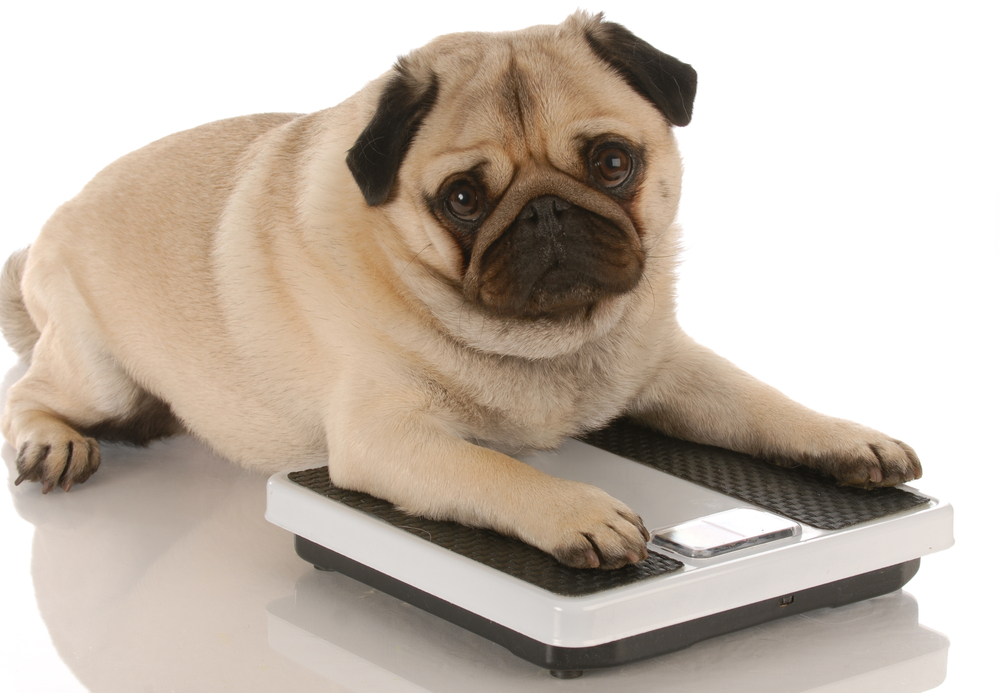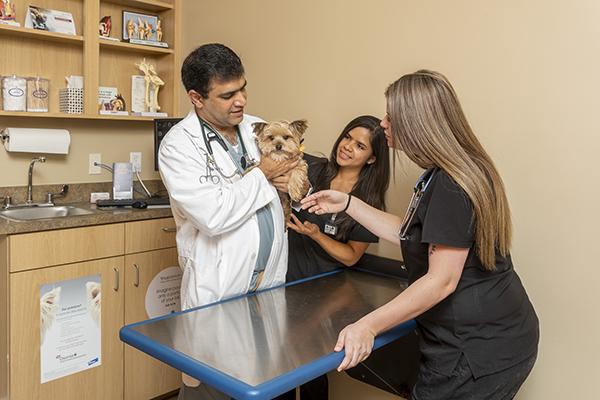
Weight gain can occur in pets just like it can in humans. Some causes of weight gain could simply be fixed by lifestyle adjustments. In other cases, there could be a serious underlying medical issue that is causing the weight gain.
Obesity in pets is more common than ever before and it can be a health risk. Talk to your vet if you have concerns. In some cases, your vet will bring it up to you and let you know it’s a problem that needs to be addressed.
Reason #1
Lack of Exercise or Movement
One big reason your pet may be gaining weight is lack of exercise. For dogs, you’ll want to make sure you take them on walks regularly for aerobic movement outside. If you have a cat that lives inside, making sure they have ample space to roam around is important for their overall health. Play is important for both cats and dogs and can help to keep them healthy and active. The more exercise or general movement a pet can get either through walking or playing will keep them at a healthy weight.
How can I get my pet to stop gaining weight?
The best way to prevent your pets from gaining weight is to make sure they get regular exercise.
Reason #2
Eating Too Much
A common reason your pet could gain weight is eating too much food. It’s easy to overestimate how much a normal serving size should be for your pet, especially if they’re begging for more food. Some pets are also good at sneaking unattended food. If you regularly give your pet treats of human food from the table, that could also contribute to weight gain, as human food isn’t necessarily ideal for a pet’s health.
How can I get my pet to stop gaining weight?
Try measuring food portion sizes for your pet and avoid giving them food from the table.
Reason #3
Hypothyroidism
Hypothyroidism is a medical condition that affects the metabolism of pets. Similar to humans with hypothyroidism, this condition can make it harder to burn calories even if your pet is staying active and eating a normal amount. Hypothyroidism is caused by a decrease in thyroid hormone production, which makes it harder to burn fat for energy.
How can I get my pet to stop gaining weight?
Take your dog to the vet for a consultation and treatment plan.
Reason #4
Breed Genetics
There are some breeds of dogs that have a higher chance of becoming overweight or obese. This is because genetics can influence not only the dog’s size but also what percentage of the body is fat versus lean muscle. Some dog breeds that are more prone to weight gain, for example, are pugs, cocker spaniels, labradors, and golden retrievers.
How can I get my pet to stop gaining weight?
Depending on the breed of your pet, weight gain may be normal. Talk to your vet if you’re concerned.
Reason #5
Obstruction of the Intestine
If your pet's belly has suddenly been growing larger, they may have an obstruction of their intestines. While an intestine obstruction doesn’t directly cause an increase in fat, it can make it harder for a pet’s body to process food. This lack of clear digestion can cause bloating and buildup in your pet’s body.
How can I get my pet to stop gaining weight?
Work with a vet to clear the obstruction with surgery or other treatment methods and your pet may start to carry a normal weight.
Reason #6
Medications
Some medications have side effects that can slow metabolism and cause weight gain. If your pet has any other medical conditions that require the regular use of pharmaceuticals, this could be the root cause of their weight gain.
How can I get my pet to stop gaining weight?
Ask your vet if there are any alternative medications that won’t cause weight gain.
When to See a Vet
Not all weight gain is a sign of a problem. In many cases, you can treat the weight gain on your own by limiting your pet’s access to extra food and making sure that they get plenty of exercise. If your pet isn’t losing weight despite your efforts to help them, if they gain weight rapidly, or if you have any concerns at all, talk to your vet. Even when you can treat your pet’s weight gain at home, you could benefit from asking your vet for advice on the best way to help your pet lose weight.


